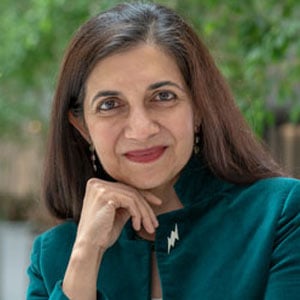“Prosperity, like peace, is indivisible,” US Treasury Secretary Henry Morgenthau Jr. said as he opened the Bretton Woods conference in 1944. It was, as he put it, an “elementary economic axiom” to help guide the founders of the IMF.
Today, these words are more important than ever. Our biggest challenges—from global warming to demographic and technological transformations—cannot be resolved by countries acting alone.
Yet just when we need greater international cooperation, we get the opposite: more fragmentation, conflict, and global disengagement; more zero-sum thinking that risks leaving our world poorer and less secure.
As we mark the IMF’s 80th anniversary, we ask: How can the Fund continue to adapt to the new realities and the changing needs of our 190 members? This F&D issue seeks to provide answers that are inspiring and thought-provoking.
IMF Managing Director Kristalina Georgieva strikes an optimistic note and calls for “21st century multilateralism”—a framework for international cooperation that’s more open and representative, with a better balance between advanced economies and the voices of emerging market and developing economies.
These voices are represented in this issue by top policymakers such as Barbados’ Prime Minister Mia Mottley, Kenyan President William Ruto, and Pablo García-Silva, a former vice-governor of Chile’s central bank. The economic fortunes of their regions depend, in many ways, on a better multilateral system, and they suggest ways in which the IMF can deliver that for its members.
On that point, proposals abound. Adam Posen reckons that narrowing the IMF’s mandate to its core macroeconomic mission and giving it greater operational independence would make it more evenhanded. Raghuram Rajan makes a related point: delegating more authority to the IMF’s management—coupled with reform to more fairly allocate quotas, the financial contributions paid by each member—could help bring a fragmented world together on critical issues.






